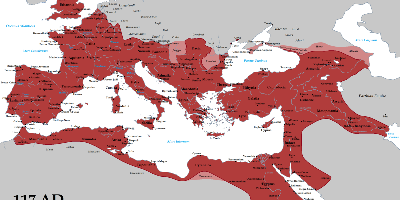1 gen 43 anni - Province of Lycia Organized
Descrizione:
In 43 AD the emperor Claudius annexed Lycia. Cassius Dio wrote that Claudius ‘reduced the Lycians to servitude because they had revolted and slain some Romans and he incorporated them in the prefecture of Pamphylia." He also provided some details of the investigation of this affair conducted in the senate. Suetonius wrote that Claudius "deprived the Lycians of their independence because of deadly intestine feuds." In an inscription found at Perge which has been dated to late 45/early 46 BC the Lycians, who described themselves as 'faithful allies’, praised Claudius for freeing them from disturbances, lawlessness and brigandage and for the restoration of the ancestral laws. It makes a reference to the transfer of power from the multitude to the councillors, selected from among the best. Therefore, it seems that there might have been a revolutionary popular uprising which could have overturned the established order. The annexation of Lycia seems to fit the common reason for annexing Roman client states or allies in this period: the loss on stability due to internal strife or, in some cases, the weakening or end of a ruling dynasty. The restoration of ancestral law was probably linked to the Roman practice of respecting and guaranteeing the ancestral laws, customs and privileges of city-states or leagues of city-states it made alliance agreements with in the eastern Mediterranean. Lycia was annexed, but the Lycian League was retained as so were self-governance regarding most local matters according to local traditional laws and the League's authority over local courts. The treaty concluded by Caesar in 46 BC had already established a framework for the distinction of judicial areas under the competence of the Lycian League and those under the Roman praetor peregrino (chief justice for foreigners) and could be used to define the assignment of legal areas between the Roman provincial governor and the League. The Romans re-established stability in Lycia and retained friendly relations with the Lycians and Lycian rights to their traditional laws, customs and privileges.In 74 AD the emperor Vespasian joined the Roman provinces of Lycia and Pamphylia into the province of Lycia et Pamphylia. Cassius Dio's statement that Claudius incorporated Lycia into Phampylia (which he had as governed by a prefect, rather than a propraetor, see above) is refuted by the existence of legati Augusti pro praetore Lyciae (imperial provincial governors of Lycia with propraetorial rank). The adoptive son and heir of Augustus, Gaius Caesar, died in Lycia in 4 AD after being wounded during a campaign in Artagira, Armenia.
Aggiunto al nastro di tempo:
Data:
1 gen 43 anni
Adesso
~ 1984 years ago
